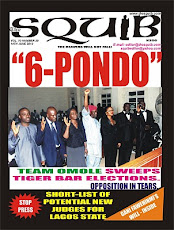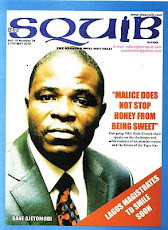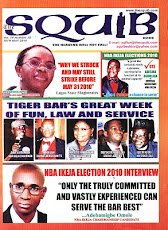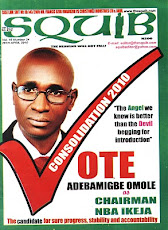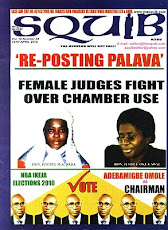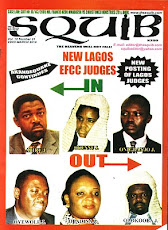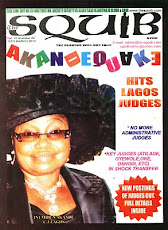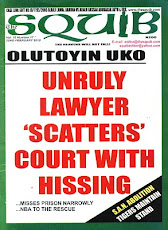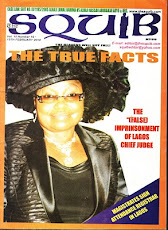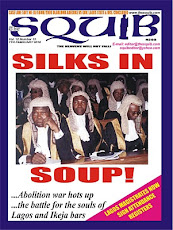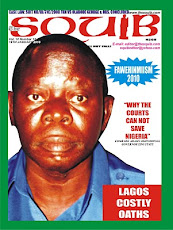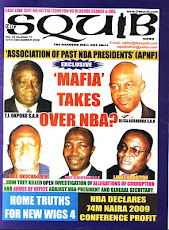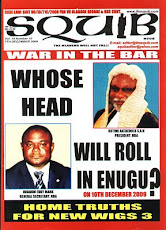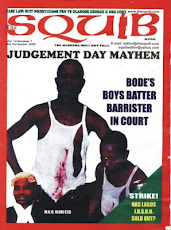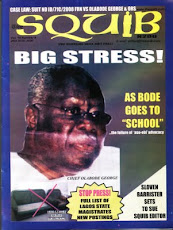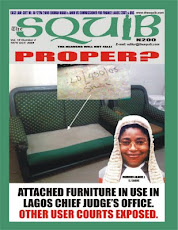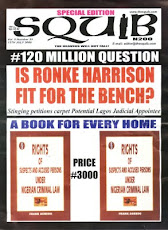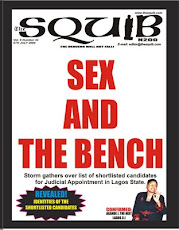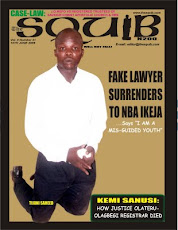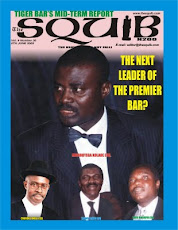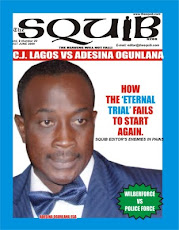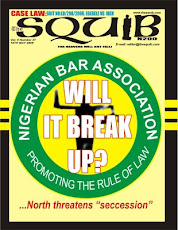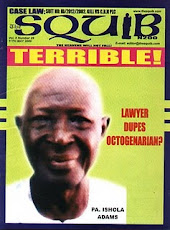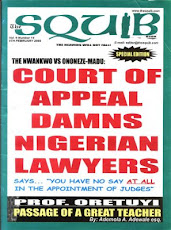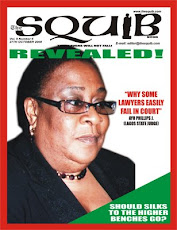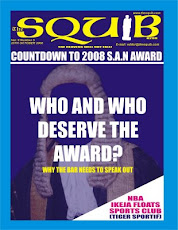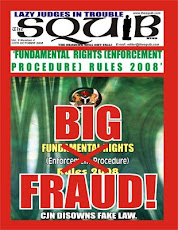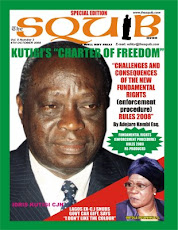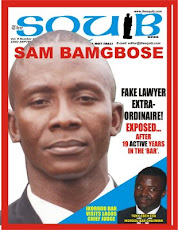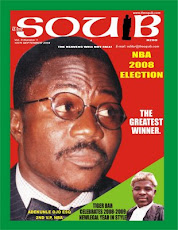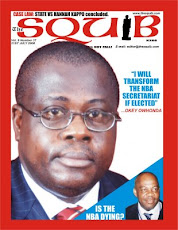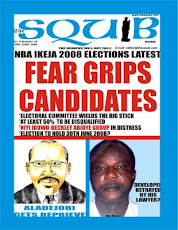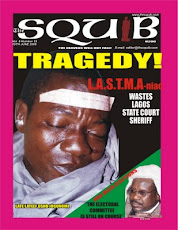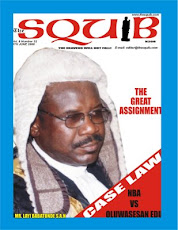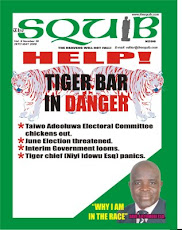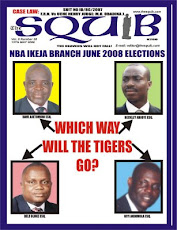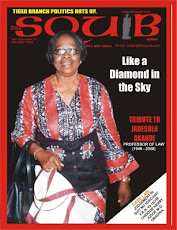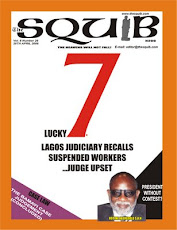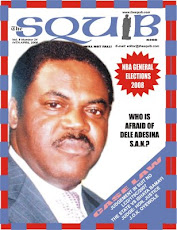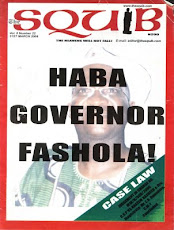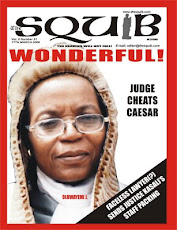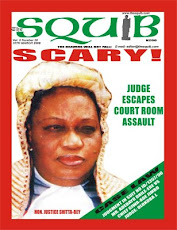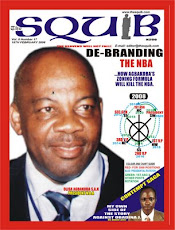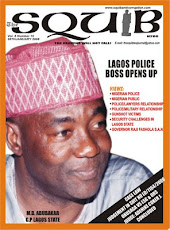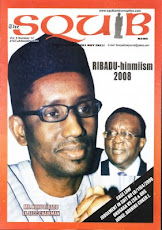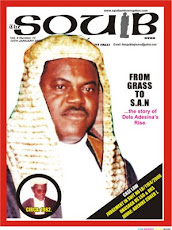
One of the odious practices of the Nigerian police is the wrongful appropriation of the properties of criminal suspects.
When the police swoop on criminal suspects, for good or base reasons, they often impound their chattels like furniture sets, cars, television and radio sets etc and bring same to their stations.
After a time, the impounded chattels are taken away into the various offices in the station and put to use. So one can find a situation where the rug belongs to suspect A, the table is owned by suspect B, the coat hanger, the property of suspect C and the television set is the property of suspect D. It is not uncommon to find impounded vehicles, driven by investigating police officers.
The Squib can however reveal that this abuse of office and powers is not limited to the police. Another important institution in the administration of Justice at least in Lagos State, the Judiciary is involved in similar practice.
In many administrative offices in the judiciary and even in some court rooms, are furniture not owned by the judiciary, but put to use there. These pieces of furniture and even electronic sets are goods seized by the police of the judiciary, to wit the court-bailiffs, otherwise known as bailiffs, during execution of court judgements and brought into the custody of the court.
The attached goods, under the law never become the property of the court but are meant to be sold off to satisfy judgement debits or be redeemed back by their owners upon payments of their judgement debts.
Unfortunately quite a few of such attached goods are converted with impunity, by staffers of the Judiciary, with the obvious knowledge and compromise of the bailiffs themselves.
The use of attached goods in the judiciary, particularly in the high courts is so rampant that such goods are in upon use in the office of the Chief Judge of Lagos State. In the reception of the office of the secretary of the Chief Judge of Lagos State at the Lagos State High Court-Igbosere, are two seats (see cover) part of a set, obviously attached goods, labeled LD/490/05. The (abbreviated) name of the attaching officer ‘sho’ is also stated also.
In some other courts (Hon. Justice Williams, Hon Justice B. Shitta-Bey) are such goods also in use.
Some sources in the judiciary informed the Squib that the unsavory situation arose for two reasons - lack of adequate storage facility in the Lagos State Judiciary for attached goods and inadequate supply of office-furniture and equipment for junior staff of the judiciary said a source-“The focus of government in the judiciary is mainly on judges. They always try to satisfy them but care less for other workers. So we have to find means of looking after ourselves. You need chairs, tables, etc to work in the office, but it is either we don’t have or the ones we have are badly damaged and nobody cares about repairs, so we have to arrange with our friends the bailiffs to help us out”.
Clearly there is no lawful justification for the conversion of attached goods for use in the judiciary. In fact it is another indication of the rot in our institution and our distorted value system as a people. Things have gotten so bad that the public institution of Justice becomes a blatant and shameful misappropriators of goods in her care.
We urge the new authority of the Lagos State Judiciary to take urgent steps to correct the grossly anomalous situation.
When the police swoop on criminal suspects, for good or base reasons, they often impound their chattels like furniture sets, cars, television and radio sets etc and bring same to their stations.
After a time, the impounded chattels are taken away into the various offices in the station and put to use. So one can find a situation where the rug belongs to suspect A, the table is owned by suspect B, the coat hanger, the property of suspect C and the television set is the property of suspect D. It is not uncommon to find impounded vehicles, driven by investigating police officers.
The Squib can however reveal that this abuse of office and powers is not limited to the police. Another important institution in the administration of Justice at least in Lagos State, the Judiciary is involved in similar practice.
In many administrative offices in the judiciary and even in some court rooms, are furniture not owned by the judiciary, but put to use there. These pieces of furniture and even electronic sets are goods seized by the police of the judiciary, to wit the court-bailiffs, otherwise known as bailiffs, during execution of court judgements and brought into the custody of the court.
The attached goods, under the law never become the property of the court but are meant to be sold off to satisfy judgement debits or be redeemed back by their owners upon payments of their judgement debts.
Unfortunately quite a few of such attached goods are converted with impunity, by staffers of the Judiciary, with the obvious knowledge and compromise of the bailiffs themselves.
The use of attached goods in the judiciary, particularly in the high courts is so rampant that such goods are in upon use in the office of the Chief Judge of Lagos State. In the reception of the office of the secretary of the Chief Judge of Lagos State at the Lagos State High Court-Igbosere, are two seats (see cover) part of a set, obviously attached goods, labeled LD/490/05. The (abbreviated) name of the attaching officer ‘sho’ is also stated also.
In some other courts (Hon. Justice Williams, Hon Justice B. Shitta-Bey) are such goods also in use.
Some sources in the judiciary informed the Squib that the unsavory situation arose for two reasons - lack of adequate storage facility in the Lagos State Judiciary for attached goods and inadequate supply of office-furniture and equipment for junior staff of the judiciary said a source-“The focus of government in the judiciary is mainly on judges. They always try to satisfy them but care less for other workers. So we have to find means of looking after ourselves. You need chairs, tables, etc to work in the office, but it is either we don’t have or the ones we have are badly damaged and nobody cares about repairs, so we have to arrange with our friends the bailiffs to help us out”.
Clearly there is no lawful justification for the conversion of attached goods for use in the judiciary. In fact it is another indication of the rot in our institution and our distorted value system as a people. Things have gotten so bad that the public institution of Justice becomes a blatant and shameful misappropriators of goods in her care.
We urge the new authority of the Lagos State Judiciary to take urgent steps to correct the grossly anomalous situation.
































































